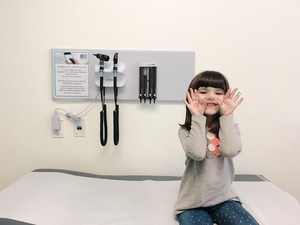Find Hepatitis test
in New York, NY.
Own a clinic? Add your location.
Help patients book appointments with you on Solv. It's free!
20 instant-book locations
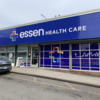
Essen Urgent Care, Marble Hill
Essen Urgent Care


Live Urgent Care, Hoboken
Live Urgent Care

UMD Care, Long Island City
UMD Care

AM/PM Urgent Care with Englewood Health, Jersey City
AM/PM Urgent Care with Englewood Health
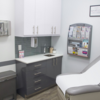
ModernMD Urgent Care, S.E. Williamsburg
ModernMD Urgent Care
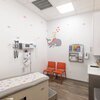
ModernMD Urgent Care, Bedford/Stuyvesant
ModernMD Urgent Care

Northwell Health- GoHealth Urgent Care, Long Island City
Northwell Health- GoHealth Urgent Care

AFC Urgent Care, Union City
AFC Urgent Care
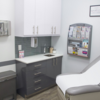
ModernMD Urgent Care, Bushwick
ModernMD Urgent Care

ModernMD Urgent Care, North Utica
ModernMD Urgent Care

ModernMD Urgent Care, Flatbush
ModernMD Urgent Care
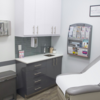
ModernMD Urgent Care, Crown Heights
ModernMD Urgent Care

ModernMD Urgent Care, Ridgewood
ModernMD Urgent Care

AFC Urgent Care, North Bergen
AFC Urgent Care

ModernMD Urgent Care, Jackson Heights
ModernMD Urgent Care

ModernMD Urgent Care, City Line
ModernMD Urgent Care

Essen Urgent Care, Glendale
Essen Urgent Care

Northwell Health- GoHealth Urgent Care, Rego Park
Northwell Health- GoHealth Urgent Care

ModernMD Urgent Care, Woodhaven
ModernMD Urgent Care
Own a clinic? Add your location.
Help patients book appointments with you on Solv. It's free!
About Hepatitis test
Who should get tested for hepatitis?
According to the Centers for Disease Control and Prevention (CDC), anyone who has been exposed to the hepatitis virus, including those who have engaged in high-risk behaviors such as unprotected sex, sharing needles, or having received a blood transfusion before 1992, should get tested. Additionally, individuals born from 1945 to 1965, often referred to as baby boomers, are five times more likely to have hepatitis C and should also consider getting tested.
Importance of getting tested
Getting tested for hepatitis is crucial as it can lead to serious health issues if left untreated, such as liver disease, liver cancer, and cirrhosis. Early detection allows for prompt treatment, which can prevent these complications and lead to better health outcomes. According to the CDC, many people with hepatitis do not experience symptoms until liver damage has occurred, making regular testing even more important for those at risk.
Hepatitis testing options in New York, NY:
Urgent care and walk-in clinics
There are numerous urgent care and walk-in clinics in New York that offer hepatitis testing. For example, LevelUp MD Urgent Care in Brooklyn offers hepatitis testing and has a high rating of 4.82 based on 147 reviews.
Primary care providers
Primary care providers are another option for hepatitis testing. It's a good idea to discuss your concerns and any potential risk factors with your primary care provider, who can then order the appropriate tests.
Free STD testing and community health centers
There are also free STD testing centers and community health centers in New York that provide hepatitis testing. These centers are a great resource for those who may not have insurance or who prefer a more community-focused approach.
At-home testing
At-home testing is another convenient option for hepatitis testing. This allows you to take the test in the privacy of your own home and then send the sample to a lab for analysis.
Prevalence of hepatitis in New York
New York has a significant prevalence of hepatitis, with rates higher than the national average. According to the CDC, the incidence of hepatitis C in New York is particularly high, with the state ranking in the top five for the number of reported cases.
Risk factors related to hepatitis in New York
Risk factors for hepatitis in New York are similar to those in other parts of the country and include unprotected sex, sharing needles, and receiving unscreened blood transfusions. However, certain factors may be more prevalent in New York, such as high rates of intravenous drug use and a large population of baby boomers.
Other STDs in New York
In addition to hepatitis, there are several other STDs that are prevalent in New York, including gonorrhea, chlamydia, HIV, and syphilis. Like hepatitis, these STDs can have serious health consequences if left untreated, further emphasizing the importance of regular testing.
Solv has strict sourcing guidelines and relies on peer-reviewed studies, academic research institutions, and medical associations. We avoid using tertiary references.
Related Searches
DOT Exam in New York
Ear Wax Removal in New York
Sports Physicals in New York
A1C Test in New York
Allergy Testing in New York
Basic Metabolic Panel in New York
CMP Test in New York
Diabetes Test in New York
Diagnostic Test in New York
H Pylori Test in New York
Hepatitis test in New York
Lab Tests in New York
Mono Test in New York
Pregnancy Test in New York
Pulmonary Function Test in New York
RSV Test in New York
STD Testing in New York
Strep Test in New York
TB Test in New York
Thyroid Test in New York
Vitamin D Test in New York
Aetna Urgent Care
Blue Cross Blue Shield Urgent Care
Cigna Urgent Care
COVID-19
Flu
United Health Urgent Care
» All services in New YorkFind hepatitis test
Nearby cities
Everyday Healthcare, Simplified
Expert advice to help you live your best life




